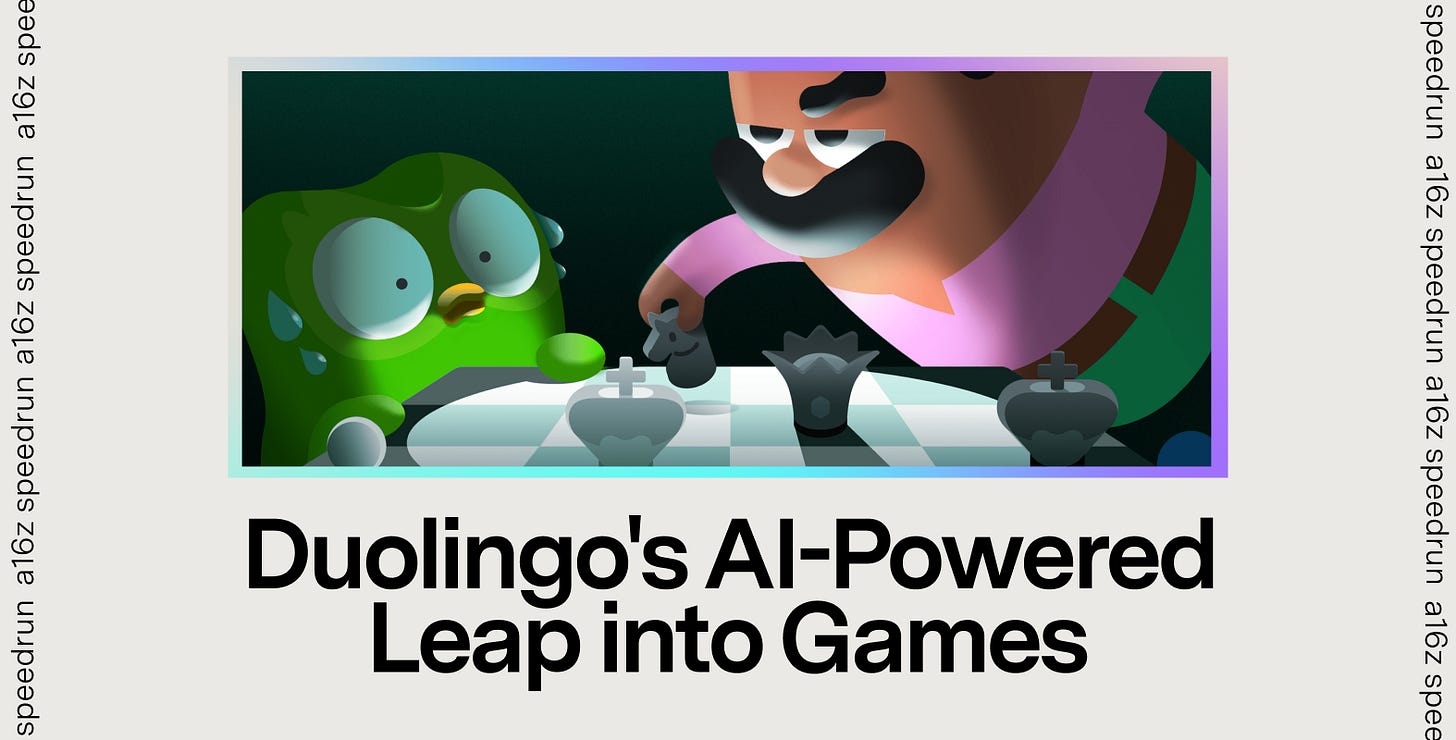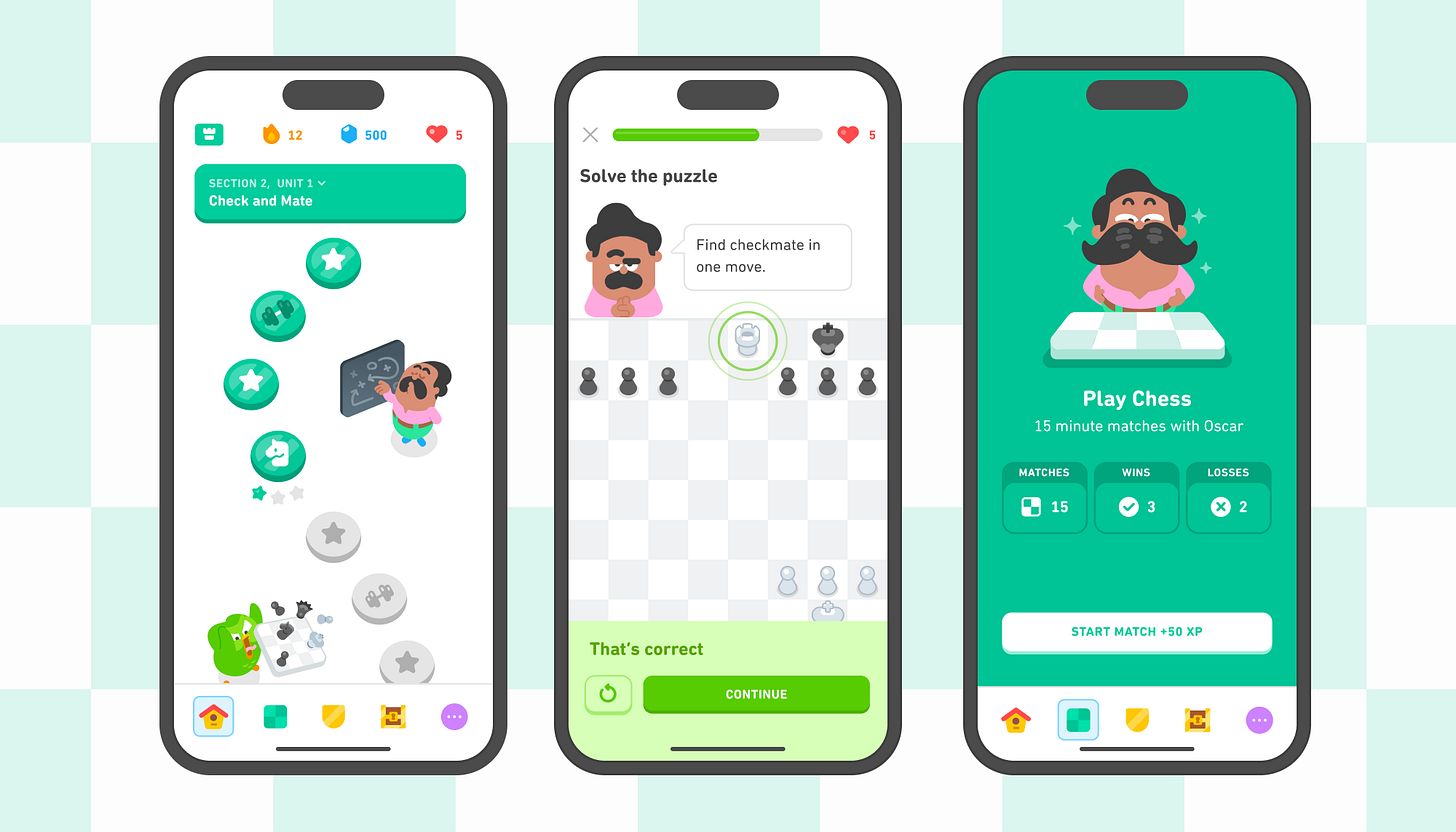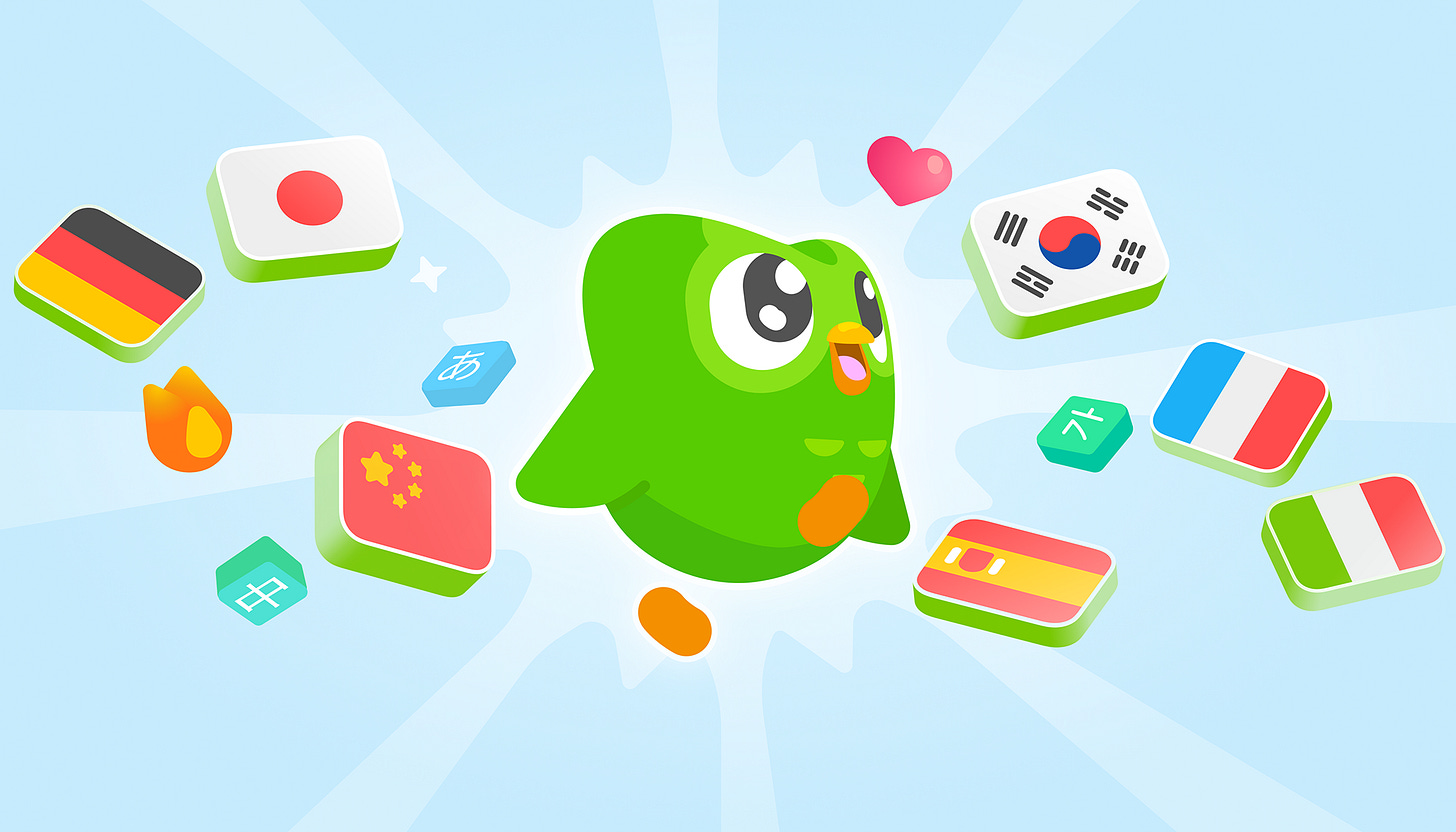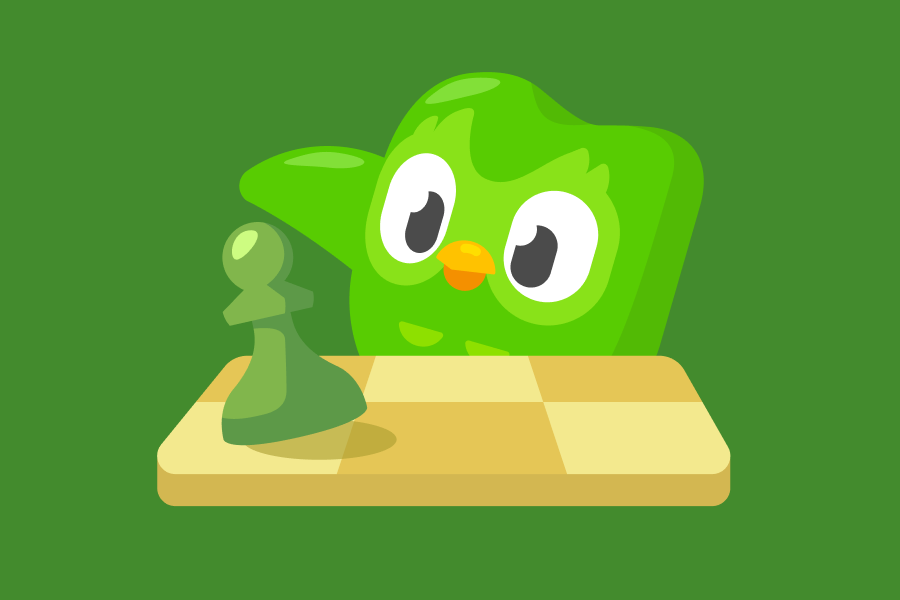Duolingo's AI-Powered Leap into Games
We spoke with Duolingo's Sammi Siegel about the company's plans for an AI-powered future and the mean green owl's bold foray into games with its new chess course.
🤔 This Week’s Big Ideas
💰 Macy Mills has some clutch advice for B2B companies struggling with pricing models.
📈 Jordan Carver compiled a list of 25 actively-hiring startups with >$50M valuations.
🕒 Jon Lai shares some favorite quotes from last week’s a16z LP Summit, including this from Ben Horowitz: “It takes just as much time to build a small, inconsequential thing as it does to build a large, world changing company. You work the same number of hours. So be ambitious.”
💼 There are over 400 open job listings across our portfolios. Join our talent network for more opportunities. If we see a fit for you, we'll intro you to relevant founders in the portfolio.
Last month, Duolingo announced plans to introduce a surprising new course for its 130 million1 monthly active users: not another supported language, but… chess?
“Strategy, logic, and a little bit of trash talk—coming soon to your app,” Duolingo CEO Luis von Ahn said on X.
Reactions were a mix of delight and, for some, puzzlement. Sure, Duolingo has always been gamified, but getting into games themselves is something different. Why is the app that teaches me French suddenly trying to school me on the French Defense?
According to Duolingo’s Staff Software Engineer Sammi Siegel, it’s all part of Duolingo’s mission to make the best education in the world universally accessible.
“Chess is a perfect extension of that mission,” Siegel said in an interview with a16z speedrun, “because it teaches logic, pattern recognition, and strategic thinking.”
And as it stands right now, most chess platforms are geared more for hardcore players and “a traditionally male-dominated audience,” Siegel says. “We saw an opportunity to open the door and make the game more accessible to a broader audience, just as we did with language learning.”
And besides—the new chess course isn’t the Mean Green Owl’s first foray into non-language-focused content. In 2023 courses in music and math were folded into Duolingo’s main app for the first time.
Siegel herself led the team behind the math course, and says those courses proved that “the Duolingo method:” small, bite-sized lessons delivered in a delightful package, could work well for subjects far beyond language learning.
So now, Duolingo’s aim is to feel “like a great personal tutor in your pocket,” Siegel says. “Whether you're learning Spanish, solving algebra, reading music, or studying chess tactics, our goal is the same: make high-quality learning feel intuitive, delightful, and actually doable.”
There was another very important lesson learned from shipping the math and music courses as well: “Those experiences also taught us a lot about building scalable content,” Siegel says, “especially with the new opportunities generative AI creates.”
Sidebar: The Social Prowess of the Duolingo Team
Duolingo is famous for its viral social media gags—so much so that they’ve become a go-to reference point for social media managers around the world.
We asked Duolingo PR Director Monica Earle: Aside from drawing in more organic views, what are the upsides of Duolingo’s spicy approach to social?
Her response:
We’ve definitely seen the viral wins, but the more surprising impact has been on recruitment and culture. We hear from candidates all the time who say they applied because of something they saw on TikTok or LinkedIn. That level of authenticity makes people want to work here, and it gives teams across Duolingo a lot of creative permission to take risks.
It’s also changed how people interact with us. Reporters, creators, even big-name partners now come in expecting a real voice behind the brand. That opens up doors we might not have walked through if we played it too safe. Ultimately, the unhinged chaotic content works because it’s rooted in something real: we don’t take ourselves too seriously, but we take our mission seriously. That balance matters.
—Monica Earle, PR Director at Duolingo
Scaling Toward an AI-Powered Future
There was much hubbub last month when Duolingo’s Luis von Ahn published an internal “all-hands email” about a shift in strategy for the company. “Duolingo is going to be AI-first,” von Ahn wrote. “In 2012, we bet on mobile… We’re making a similar call now, and this time the platform shift is AI.”
The line from the memo that grabbed the most press attention was von Ahn’s note that the company will “gradually stop using contractors to do work that AI can handle.” The upside of the pivot became obvious only a few days later, when the company announced that it was adding more than 148 new language courses, more than doubling the number of courses available to learners in a single update. The company says that while it took over 12 years to create its first 100 courses, the 148 new courses were created within the span of a single year—thanks largely to AI-enhanced workflows and tools.
Most of these AI-powered courses added are intended to better support non-English speakers learning popular languages other than English. Spanish and Portuguese speakers finally have access to courses in Japanese, Korean, and Mandarin, for instance. And speakers of many Asian languages that were previously limited to learning only English will now have access to seven of the app’s most popular languages.
In an era when concerns about the negative impacts of AI on education dominate discussions of the tech, this is a radically pro-education and even pro-human approach.
The Ultimate AI Chess Coach
As it stands today, Duolingo’s chess course is designed for beginners. “We’re not trying to prep you for tournament play just yet,” Sammi Siegel tells a16z speedrun, “but we do want to give you the tools to play full games, recognize key tactics, and feel like you belong at the board.”
But in the longer term, the team’s ambition is to lead the way with more advanced AI-powered features to make learning chess even better. Siegel says that her team is exploring features like “personalized, human-like bots and real-time commentary.”
And while today the Duolingo chess course features an adaptive AI agent that adjusts to meet players at their level of play, the ambition over time will be to make the chess course “even more adaptive… eventually recommending new openings, practice scenarios, and puzzles based on past mistakes and performance in matches.”
But there’s one other obvious social feature currently missing from the app—competitive play. Is there a chance it’ll get added in a future update too?
Not yet, Siegel says, but it could happen one day. “Competitive play is definitely on our radar,” she says, “but we're starting by ensuring the foundation is strong. Once that’s in place, we’ll look at how more competitive elements could fit into the experience while still supporting learning.”
That’s it for this week. For more weekly deep-dives into the cutting edge of tech and entertainment, subscribe below:
And we’ll see you next week.









